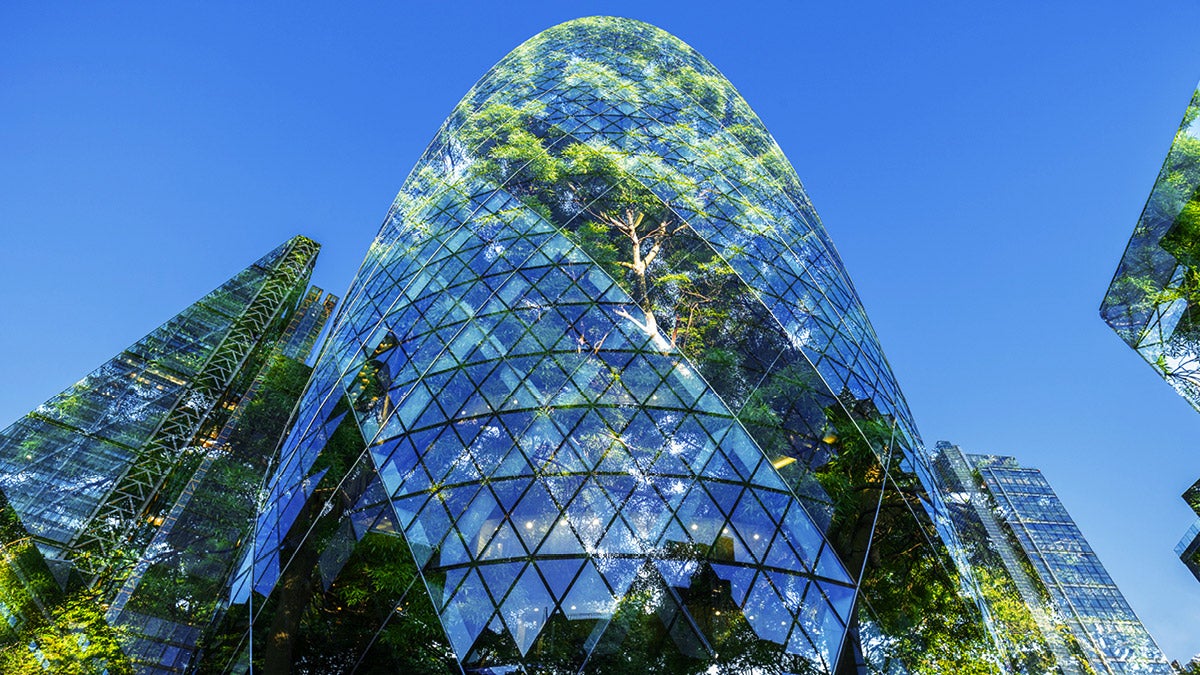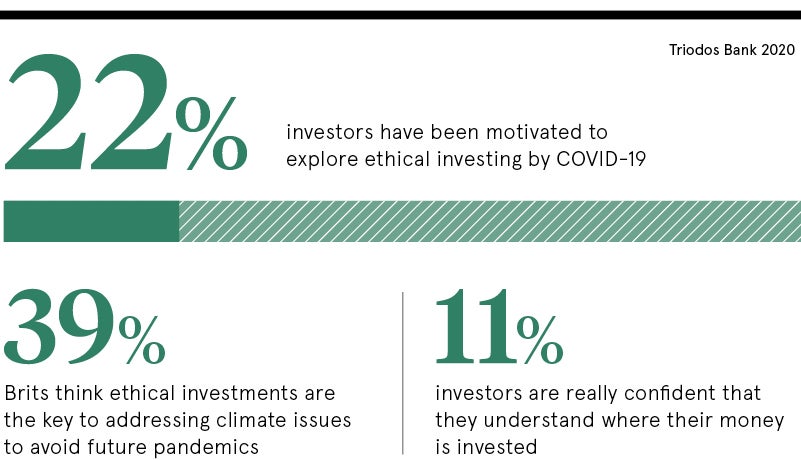
As 2020 staggers uncertainly towards a close, fortified by hopes of green recovery, it is easy to forget the year actually began pretty green in investment terms.
January saw green action by both of the world’s biggest fund managers. BlackRock took its money out of coal and the Church of England backed its climate beliefs with a new transition index on the London Stock Exchange. Then along came coronavirus.
COVID-19 has affected different markets in different ways: it has stalled or stopped some trends forever; others it has accelerated and intensified. Sustainable investment is one of the lucky ones, says Tom McGillycuddy, co-founder of tickr.
“The returns from sustainable and impact investments have consistently outperformed the stock market since the beginning of the pandemic. The industry no longer has to sell a principle, or morals-based argument, it can now point to returns as well,” he says.
As an impact investment app, tickr taps into a smartphone generation for whom environmental, social and governance (ESG) criteria are becoming not just relatable, but attractive.
From grassroots activism to greenwash
Professionally, too, there is a growing acceptance that investing sustainably can make money, that it does not cost you dearly to do good, says Edward Lees, co-head of the Environmental Strategies Group at BNP Paribas Asset Management.
“ESG-themed inflows to exchange-traded funds have been massive and quite consistent this year, helping to lift various related sectors. This is in part a reflection of a greater public awareness around climate and social issues,” he says.
If anything, the green recovery idea has simply provided a big boost to an established trend, adds Tim Cockerill, investment director at Rowan Dartington, part of the St. James’s Place Group. “Financial returns and environmental principles go hand in hand. Consumer demand and necessity drive change; this creates the investment opportunity and profit motive,” he says. “The more businesses become sustainable, the more that’ll drive change and consumer behaviour; one thing feeds the other.”
In fact, research by Triodos Bank has found that the pandemic is driving growth in sustainable investments, motivating more than one in five UK adults (22 per cent) to explore ethical funds, with over a third (39 per cent) considering them key to addressing climate issues and avoiding future pandemics.
Much as sustainability and ESG-screened indices have skyrocketed in popularity, however, this red-hot promise of green growth comes with a few caveats, argues Jacco Minnaar, chair of the management board at the sustainable bank’s investment arm, Triodos Investment Management.
“Too many products are aligned to marketing hype rather than an authentic impact investment strategy,” he says. “The problem is that the term ‘sustainable’ is not protected and there are no globally or nationally recognised definitions.”
Blueprint for a green economy
So where should the smart money go in a green recovery? Published in July, the World Economic Forum’s Future of Nature and Business report identified 15 transitions that form a blueprint for a green economy, which could generate $10.1 trillion in annual revenue and create 365 million jobs by 2030.
In the case of the energy sector, evidence of the economic viability of renewable power generation is everywhere, with the International Energy Agency confirming solar power to be the cheapest source of electricity in history.
Furthermore, the sustainability wins are multiple from electric vehicles cutting carbon and city-centre pollution, to solar farms cooling datacentres that power the digital revolution.
As well as the environmental benefits accruing, there is a significant wealth-creation opportunity with the energy transition, says Duncan Grierson, founder and chief executive of Clim8 Invest.
“Trillions of pounds and dollars need to be invested into clean energy to meet the goals of the Paris Agreement and returns can be very good, especially in a zero interest-rate environment where investors are desperate for returns,” he says.
The banking sector is also in a strong position to help drive a longer-term strategic play, says Scott Barton, head of corporate and institutional coverage at Lloyds Bank. “Banks have an important role in reducing the carbon footprint by incentivising businesses to move towards more sustainable funding strategies,” he says. “This investment will help create high-value jobs and build a more resilient economy. The pandemic hasn’t dampened our focus on sustainability, it has strengthened it.”

Steering investors to “build back better”, in a literal sense, the launch by Lloyds in June of a Green Buildings Tool was designed to help commercial customers identify potential energy savings and recommend performance improvements. Clients have already used it to assess an area of real estate, equivalent to about 520 football pitches.
On the domestic front, investing in a green recovery might also include such initiatives as the UK government’s new Green Homes Grant scheme, announced as part of a £3-billion green buildings package, delivering up to 140,000 jobs.
The grants fund vouchers to help landlords and low-income homeowners retrofit insulation to fix leaky properties that both burn energy unaffordably and generate emissions unsustainably.
Green New Deal in the White House
Ultimately, though, when it comes to investment, the classic argument applies: if you think the business case for sustainability is hard, try making the alternative.
Especially now with the Green New Deal back on President-elect Joe Biden’s White House agenda, who would back dirty money against clean power? Dr James MacGregor, environmental economist at Ramboll, says the green recovery is a defining moment for sustainable investment. “It has long been said that meeting the sustainability imperative would require restructuring entire economies and injecting trillions of dollars in public funding. Now we are injecting trillions, we have a once-in-a-lifetime opportunity to fund the transition to a sustainable future while relaunching the economy,” he concludes.

As 2020 staggers uncertainly towards a close, fortified by hopes of green recovery, it is easy to forget the year actually began pretty green in investment terms.
January saw green action by both of the world’s biggest fund managers. BlackRock took its money out of coal and the Church of England backed its climate beliefs with a new transition index on the London Stock Exchange. Then along came coronavirus.
